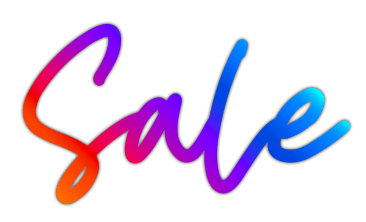
Hurry! Our Crazy Christmas  end in:
end in:

Hurry! Our Crazy Christmas  end in:
end in:

4.8 out of 5 based on 14,515 reviews
So you’ve just had your interview, you can now relax, right? Wrong! Post-interview is a great time to remind your interviewer about you and show them that you’re keen for the job.
We have put together a guide, highlighting how you can follow up after your interview, to increase your chances of success.
Check out our other interview tips to help you prepare for your job interviews.
Following up after an interview is great for a few different reasons.
First, you will have the opportunity to ask questions you may not have thought about during the interview. It can be stressful after all, and the likelihood is you may have forgotten a question or two to ask.
Next, you can send a follow-up message to be remembered and stand out from your competition. You want the Hiring Manager to remember your name and actively think about you and the interview you had. There are often many applicants interviewed, so you need to do what you can to stand out.
Following up after an interview also shows a level of professionalism that HR departments appreciate and remember. Many candidates will not make the effort to follow up after their interview, show it will look good that you did.
Learn how to prepare for a second interview
Waiting for a response after your job interview can be a tense time and it’s easy to get impatient.
As a rule of thumb, it’s best to follow up five working days after your interview. This gives enough time for your interviewer to interview other candidates and have time discussing each delegates strengths and weaknesses with other team members.
It can take longer than a week to hear from a company for a range of reasons, including:
Discover what employers look for in employees
We have put together ten different ways for you to stand out from the competition in your job interview.
Understand more about the company than others – Research thoroughly and use the information you’ve gain, during your interview to showcase the knowledge you’ve gained (otherwise it’s potentially wasted time researching).
Personal branding - Set yourself apart and make yourself stand out, through your skills, personality, experience, and knowledge. Be the best version of yourself, but still be yourself!
Be vocal and conversate during your interview – It’s important to let your personality shine in your interview. It’s easy to just sit there an answer questions in a rehearsed and robotic fashion, but that doesn’t let your interviewer see the real you. Try to give extended sentences rather than bullet point snapshots.
Highlight your previous results – Try not to be too generic with your comments and be specific with ways you have done certain things, or with the results you have achieved.
Have a case study prepared with you – This is a great way to show you have gained results in a key area, especially if it’s visual with data and graphs. This way, your interviewer can digest the success you’ve had, and this is likely to make a solid impression as not many people do this.
Prepare a 30 – 90-day plan – Do you really want to make an impression? Bring with you a 30-day, 60-day, and 90-day plan for what you would do in your first 3 months at work. We guarantee you will be one of a small percentage of people doing this, giving you a huge advantage over the competition.
Think carefully about the questions you want to ask – It’s easy to get to the end of your interview and be glad it’s all over. So much so, that you forget to ask your questions, or you ask questions that are not that well thought out. Select a few key questions that you want to ask, and confidently present these at the end of the interview when prompted. Remember, you want to see if this company is a good fit for you, not just the other way around.
Keep your questions focused on the job, the training you’ll receive at the start, the company overall, etc. Try not to ask about salary, bonuses, working hours, annual leave, and other benefits at this stage. You can raise these before accepting a job offer.
Be mindful of your body language – Your body language says a lot about you and how you’re feeling. There may be some body language characteristics you have that you will need to change for your interview.
Positive body language includes sitting up straight (leaning in slightly to show interest), maintain eye contact (even if it is uncomfortable to do so at first), walking in confidently with your head held high and back straight. Whereas negative body language includes clearing your throat, glancing around the room, slouching, fidgeting, and tapping your hands or feed.
Finish off your interview with a ‘thank you’ email – Another edge over your competition is a thank you email. Not many people do this, so by sending your interviewer a thank you email, you can be sure to make a lasting impression after your interview has finished. You want to leave it a day before responding and if your interview was on a Friday, send you email the following Monday.
Learn how you can stand out from other applicants in your job search.
If you’re looking to undertake professional training to land your dream job or advance your career, call our team on +44 (0) 20 3198 7700 and one of our Course Consultants will be happy to talk through your training options. Alternatively, fill out our contact form and we will be in touch shortly.
Join the thousands of individuals, small businesses, and large corporations who trust e-Careers.
Chat with our friendly experts today to discuss your training needs. Call us now on
Alternatively, you can request a callback
Enquire Now